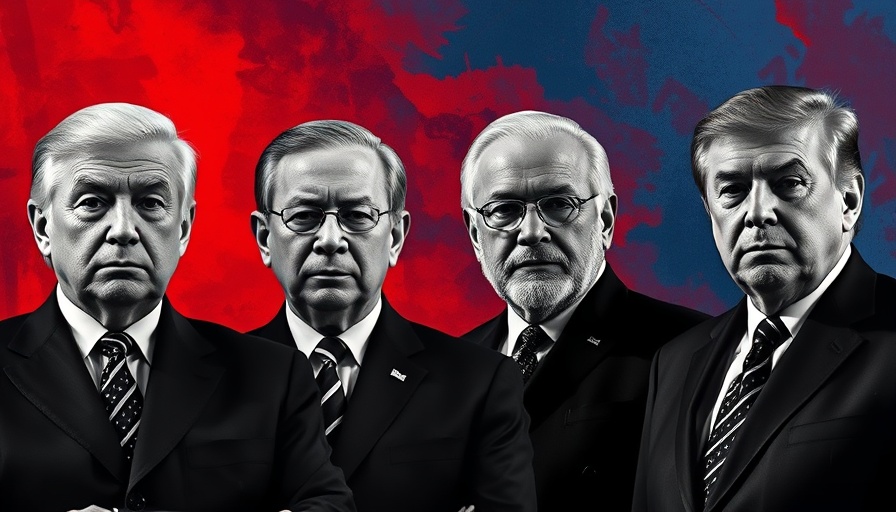
How Trump's Actions Influence Global Autocracy
The rise of Donald Trump has sent waves through the political fabric not only of the United States but across the globe. His presidency has been marked by a controversial stance that appears to empower autocratic leaders, influencing global politics in a multitude of ways. As nations grapple with the ramifications of his approach to governance, it becomes essential to examine the implications of his presidency on global democracy.
The Shift in Global Leadership Dynamics
Trump's foreign policy has often leaned towards the endorsement of strongmen leaders, presenting a stark contrast to traditional American political ideals. Reports suggest that his administration's willingness to engage with such figures, instead of promoting human rights and democratic values, has emboldened authoritarian regimes. This shift raises concerns about the future of democratic movements worldwide, especially in regions where these regimes thrive.
International Reactions to Trump's Style of Leadership
In places like Turkey and Russia, leaders have viewed Trump's presidency as a validation of their own autocratic practices. With every meeting and mutual endorsement, a precedent is set that embraces a less democratic form of governance. Observers note that while the U.S. has traditionally posed as a defender of democracy, its current trajectory under Trump may create a ripple effect, encouraging leaders in other countries to ignore democratic norms.
Counterarguments: The Tradition of Realpolitik
However, some analysts posit that Trump's approach—though unpopular in many circles—aligns with a long-standing tradition of realpolitik. This perspective suggests prioritizing national interests over ideological commitments. Notably, the support for authoritarian rulers often aligns with strategic geopolitical interests. Yet, critics argue this strategy can erode the very fabric of democratic ideals, leading to long-term unintended consequences.
Future Predictions: A World of Strongmen?
Looking forward, the trajectory seems evident: if the trend continues, the world may experience a resurgence of autocratic governance. Emerging markets, particularly in regions such as Asia and Eastern Europe, may see strongmen consolidating power, emboldened by the notion that the U.S. is less interested in upholding democracy. As Trump potentially embarks on a second term, the question looms large: What kind of global landscape will emerge if these trends persist?
The Impact on American Values
Trump’s presidency challenges Americans to reconsider the nation’s identity and values. The dichotomy between American democratic principles and the embrace of strongman politics requires critical reflection from both citizens and political leaders. As supporters and opponents grapple with these issues, the challenge lies in determining what it truly means to be a global leader.
Engagement and Advocacy: A Call to Action
In light of these observations, it is crucial for American citizens and policymakers to engage in dialogue about the nation's foreign policy strategies and their implications for global democracy. Encouraging discussions at platforms such as community forums and local business networks can foster awareness and inspire advocacy for maintaining democratic norms both at home and internationally.
Conclusion: The Role of the Public in Shaping Policy
The future of democratic governance lies not only in the hands of political leaders but also in the citizenry’s ability to hold them accountable. As Trump’s presidency unfolds, it becomes imperative to navigate this complex landscape with vigilance and a commitment to promoting justice and equality worldwide. Mobilizing grassroots movements and supporting diplomatic efforts that encourage democratic governance are essential steps toward creating a world that honors freedom and human rights.
 Add Row
Add Row  Add
Add 



Write A Comment